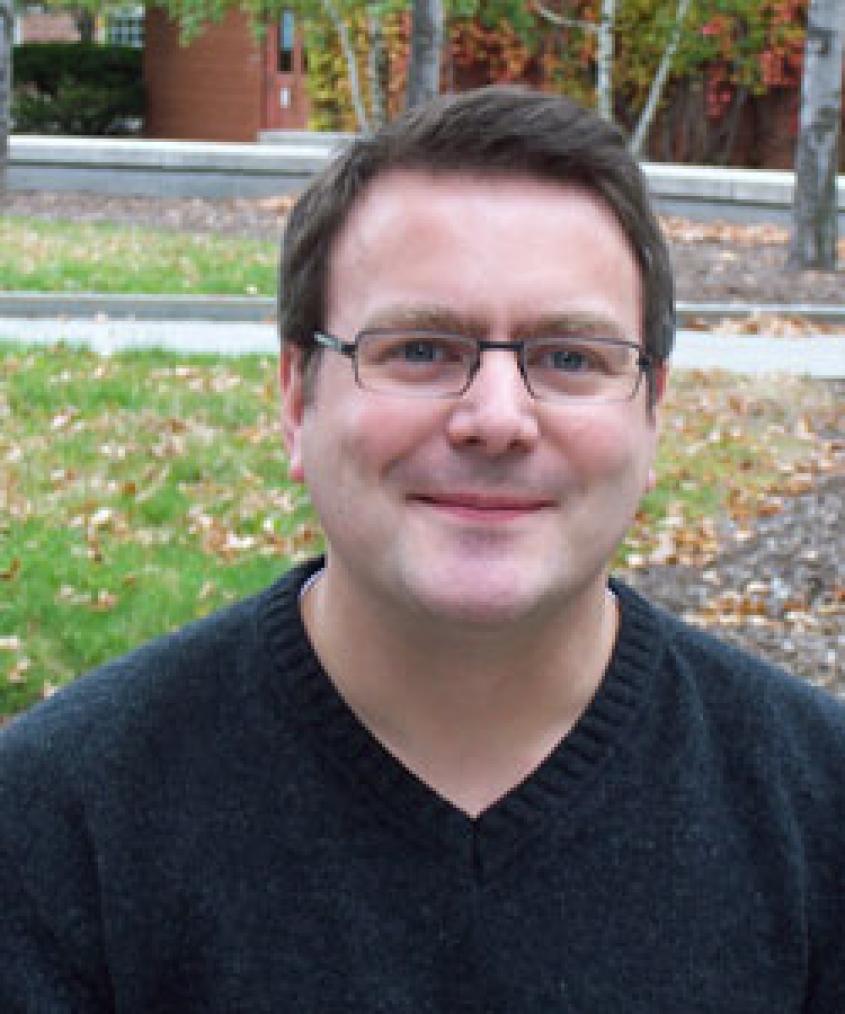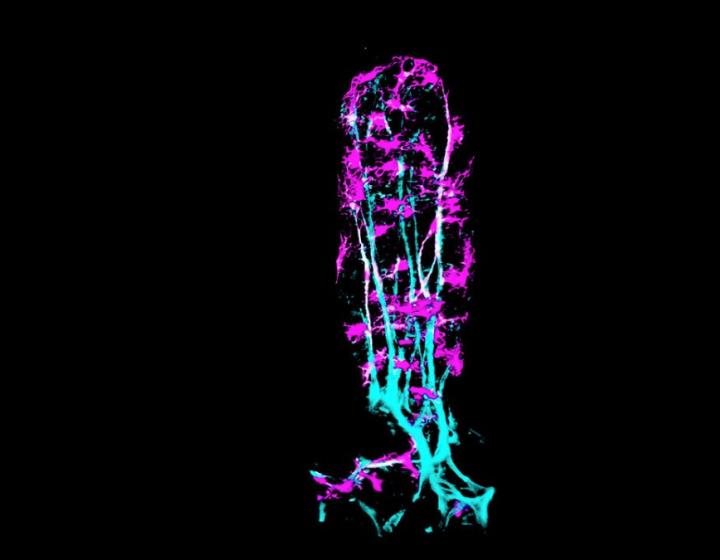Holger Sondermann featured on Cornell Research
If you think bacteria are unsophisticated, single-celled organisms passively floating around in their environment, you might want to think again. Over the past few decades, scientists have discovered bacteria are not the knuckleheads we once thought they were (at least in comparison to their eukaryotic counterparts). “It turns out they have a pretty complex lifestyle,” says Holger Sondermann, Molecular Medicine. “They can be either free floating, or they can be part of a larger, coordinated community, called a biofilm. They’re able to switch their lifestyle depending on what is happening in their environment.”
Sondermann and his lab are interested in bacterial physiology and signaling, especially as they relate to biofilm formation and pathogenicity. Biofilm, which looks like an oily slime, is often referred to as the social lifestyle of bacteria. “It’s implicated in the majority of chronic infectious diseases,” Sondermann says. “It’s one of the reasons why many antibiotics don’t work efficiently because bacteria living in a biofilm are protected from antibiotics.”
Click here to be redirected to the Cornell Research website to read the rest of the story.
by Jackie Swift




